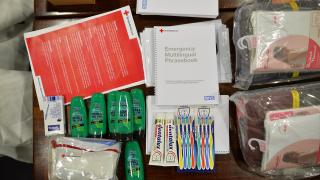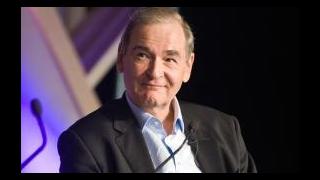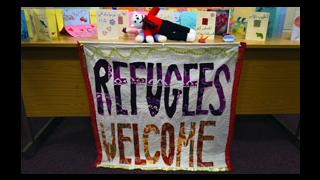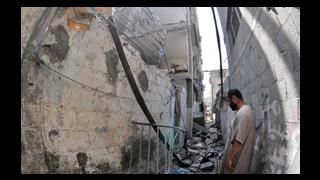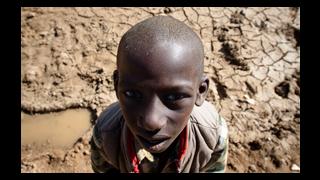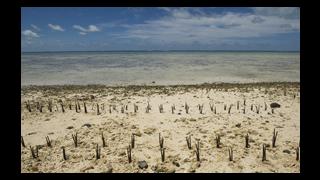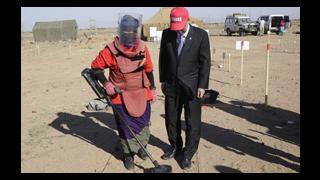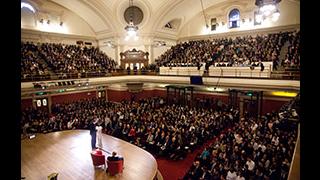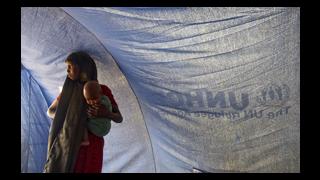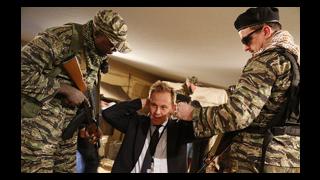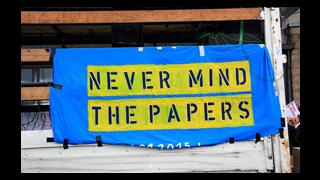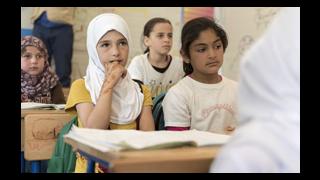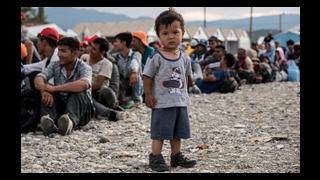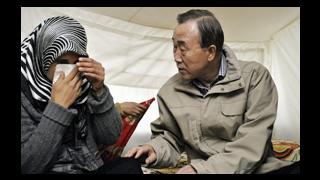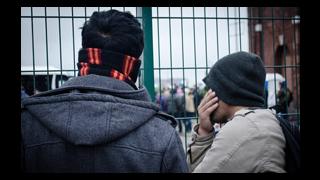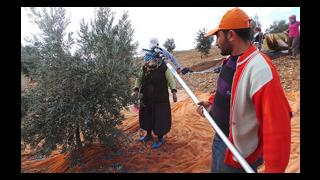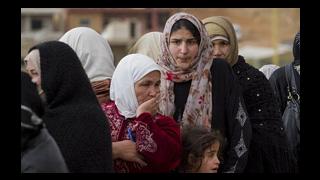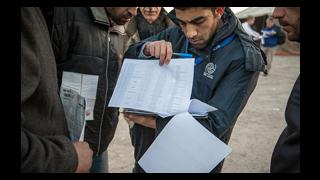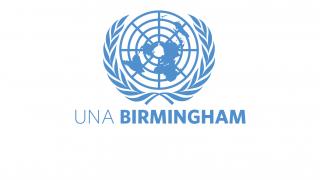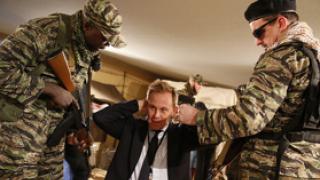
Sally Begbie is Co-Founder and Director of Crossroads Foundation
“I never thought I could talk to others about the suffering I experienced as a refugee,” said Paul, a cast member in our simulation programme, with searing earnestness. “After people have this experience, though, I can have that conversation.”
That deepened understanding is one of many reasons Crossroads Foundation runs simulation programmes. Participants do not listen to a talk or watch a video. They step, briefly, into the shoes of vulnerable people, through simulation. Our hope is that this will help them engage with issues of global significance.
As it is rarely possible to take many people to refugee locations, for example, we wondered if it might be possible to take a brief ‘experience’ of refugee challenges to them. At first, we were not sure that this could be done, particularly in a short time. It was our refugee colleagues who encouraged us. They helped guide the choice of refugee issues it should address, along with the storyline and set.
The simulation begins with an attack on a village. Participants find their world suddenly in darkness as explosions ring out, soldiers invade with AK-47 assault rifles and smoke engulfs them. They escape to an armed checkpoint where they must negotiate with soldiers to enter a refugee camp. Admission may cost them a watch, valuable jewellery, a mobile phone or more.
In the camp, they battle for survival. Soldiers may stop anyone for interrogation with little or no reason. Food is minimal and comes at a further cost of one’s bartered possessions. Medicine is scarce, though some might be found if, for example, an attractive sister, daughter or son can be offered for sexual favours. Corruption and abuse are endemic.
“And this”, said Antόnio Guterres, former UN High Commissioner for Refugees, after participating in the simulation, “is a nice camp. There are many worse.” He wasn’t, for the record, speaking of UNHCR camps, but those run by opportunists in the absence of the UN or other responsible organisations.
Asked how they feel after this immersive experience, participants typically respond with comments such as “powerless”, “I had no rights” or “my life didn’t matter to anybody”. Many say, some through tears, “I had no idea…” Others add, “So what’s Step 2? Now that I have this new understanding, I have to help.” This question is critical to us. Following the simulation, refugee cast members join us for a debrief and we discuss ways participants can use their professional or personal resources to make a difference.
Crossroads never, originally, intended to run a broad range of simulation programmes. They began in 2005 when we celebrated ten years’ work in the humanitarian aid sector and held a 24-hour ‘experience’ of poverty. We expected it to be a one-off. Afterwards, to our surprise, we were inundated with requests to run more. In time, too, we were asked to offer simulations on a wider range of global issues: poverty, water access, HIV/AIDS, blindness, hunger, disasters, cross-cultural challenges and refugees. To date, we have seen over 150,000 participants in programmes held in our Hong Kong headquarters and internationally. These have included attendees at the World Economic Forum in Davos, where we have run simulations since 2009. Participants there include global leaders with significant reach and influence, such as UN Secretary-General Ban Ki-moon, who described the event as “A profound experience that reminds us of the plight of millions”.
The impact of these simulations has caught us by surprise. We have worked for 20 years in the humanitarian sector, using our fair share of PowerPoints, talks and discussion panels. None of these methods, though, seem to make the powerful impact that 'experiencing' the problem can, even if it is only simulated. It has moved participants to help put thousands of refugee children in schools, to provide urgently needed supplies for camps, to donate legal expertise or logistics services, to support refugee employment and even to start NGOs.
The philosopher Aristotle, we think, may help explain the impact. His ancient writings describe the need for “ethos, logos and pathos”. Logos, unquestionably, is crucial: right information about the refugee dilemma. Ethos, likewise: the moral imperative to act in response. But pathos – or, perhaps, in today’s parlance, empathy – has its place as well. Without all parts of that trilogy, the refugee tragedy can be reduced to an academic or political debate. When the three come together, it can be life-changing.
Put another way, our African refugee colleagues often remind us: “I can’t understand a man until I walk a mile in his shoes.” While we can’t offer a mile, we can offer a few steps. And those, we find, can see people willing to continue the refugee journey, playing their part. That’s where simulation best meets reality.
Photo: Soldiers interrogate Michael Anders, Founding Partner, ICONIQ Capital at A Day in the Life of a Refugee at the World Economic Forum in Davos, 2016. Credit: Crossroads Foundation

